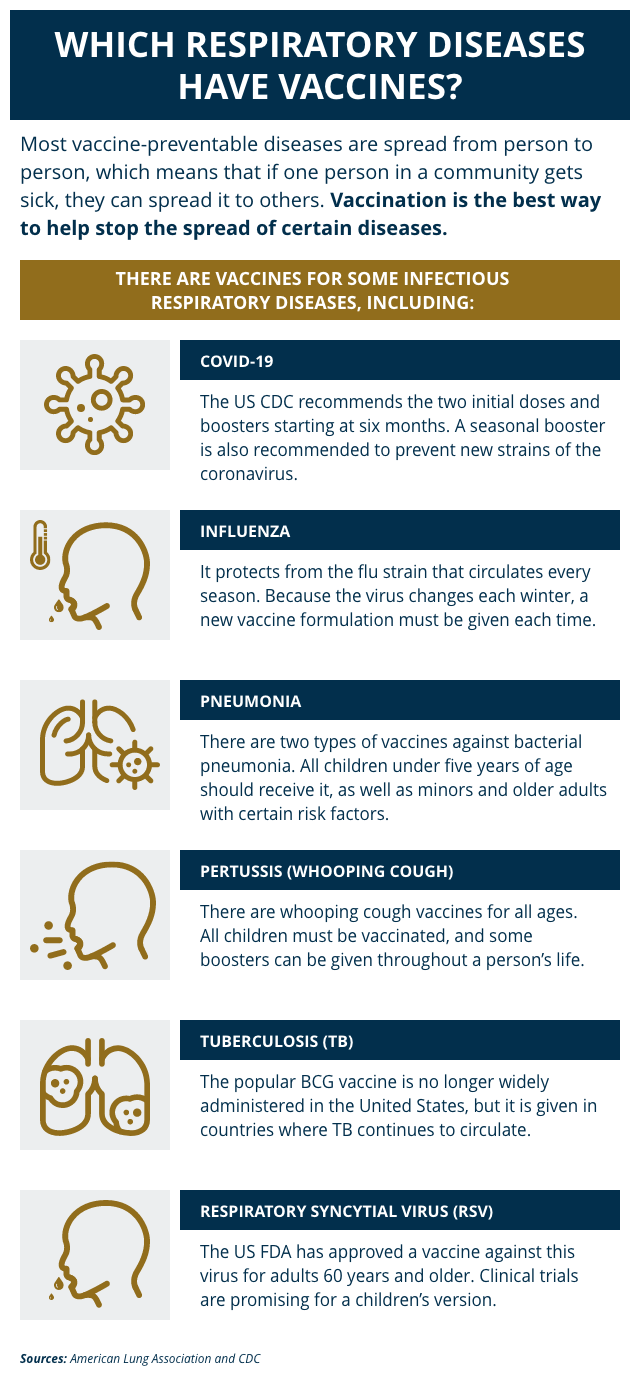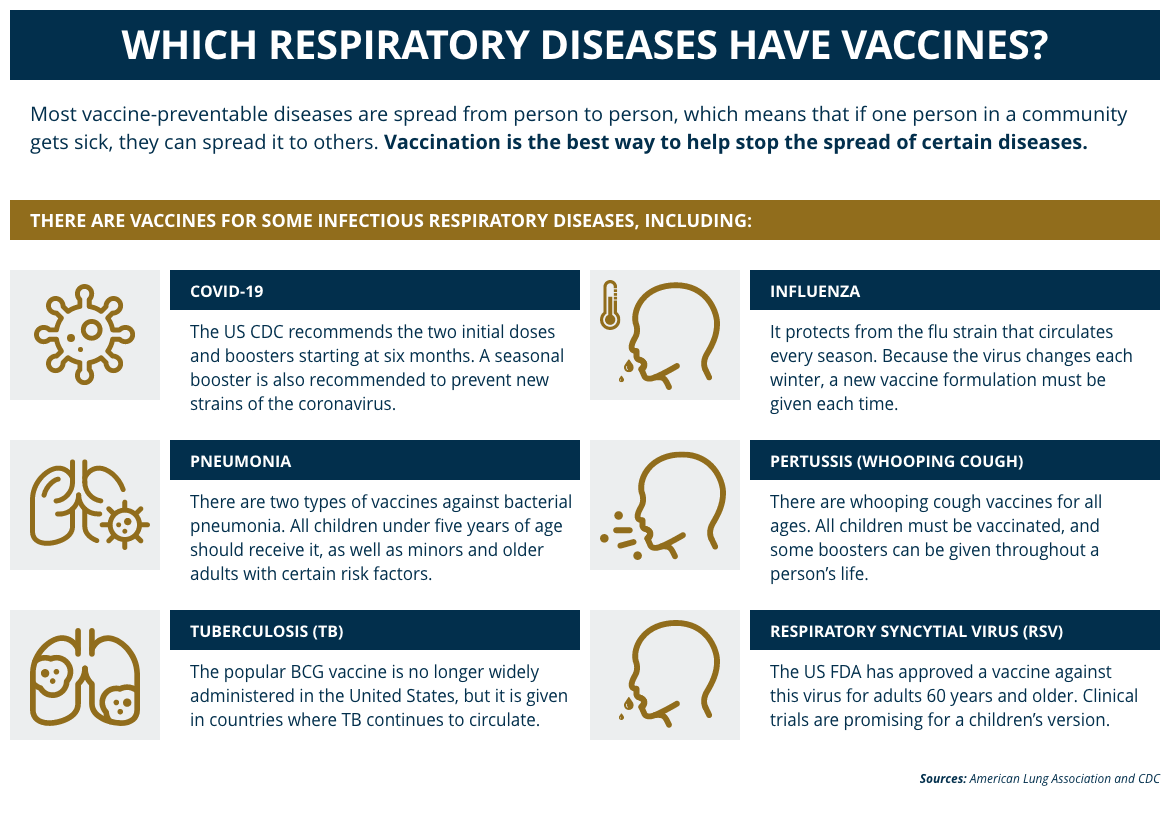29 Jun 2023
Closer to a Single-Dose Combination Vaccine for Respiratory Illness
Estimated read time: 5 minutes
Cases of respiratory infections are surging in the wake of COVID-19 pandemic, when widespread lockdowns and the use of masks helped mitigate not just the spread of the coronavirus but that of other viruses that can impact our ability to breathe — and can cause severe health complications. The good news is that there are vaccines to protect us from these viruses, and we’re getting closer and closer to the development of a combined dose that would provide immunization against multiple germs.
Unlike COVID-19, viruses like influenza, which is known as the flu and can cause acute viral infections, are seasonal and have been circulating around the world for so long that they are not perceived as harmful in our collective imagination. But the statistical reality is different: In Latin America and the Caribbean, there are 400,000 annual hospitalizations related to complications of this infection, of which around 36,500 are fatal.
Also in the region, about 137,000 people die from complications of respiratory tract infections, including pneumonia, a condition that causes the alveoli, or air sacs, to fill with pus or fluid.
Influenza and pneumonia, two of the most common respiratory illnesses, are preventable thanks to vaccines.
People should receive the single-dose influenza or flu vaccine each winter season. The seasonal characteristic of the virus causes it to mutate, which is why scientists must develop a new formulation of the vaccine each season. The US Centers for Disease Control and Prevention (CDC) recommends that everyone over the age of 6 months get a flu shot.
It is important to know that while vaccinated people can still contract the virus, they will typically have milder symptoms and clear the body of the infection faster. Also, the sum of vaccinated people helps weaken the virus through what’s known as “herd immunization” — a sort of collective immunization fortress that makes it harder for the virus to find bodies to infect, slowing its spread.
The pneumococcal vaccine, which protects against pneumonia, is recommended for adults 65 years and older and for people between 19 and 64 years who have chronic health conditions. It consists of two doses given 6 to 12 months apart. Each dose is given only once, and immunization is for life.
On the Horizon
One common barrier to vaccination access is cost, but adherence is also an issue. Many people, for different reasons, fail to comply with the required vaccination schedule and thus do not achieve complete immunization.
Ongoing research could offer a step forward in addressing these obstacles and improving vaccination rates overall. Scientists are now working on a combination vaccine that would immunize us against both COVID-19 and influenza.
Some studies go even further, adding respiratory syncytial virus (RSV) to the equation. A vaccine was recently approved in the United States for RSV, which also affects the lungs and respiratory tract. Post-pandemic monitoring of this virus showed an increase in cases across the continent.
In the search for a combination vaccine, the Moderna, Pfizer, and GSK laboratories are among those working with mRNA vaccine formulations and other chemical alternatives to allow more antigens to be included in a single shot that would eventually protect against more viruses.
These drugmakers say they could have a combination flu and COVID vaccine ready by next year, and another that would include RSV by 2025.
In the words of the World Health Organization (WHO), immunization is an essential component of primary healthcare and an indisputable human right. Vaccines are a major health achievement, preventing more than 20 diseases; they are a clinical path of prevention that saves millions of lives worldwide every year. The development of new formulations to facilitate immunization will further expand its benefits.
By getting vaccinated, people not only protect their health but also help protect the community, especially those most vulnerable, such as children, older people, and those with chronic illnesses. Pan-American Life Insurance Group, in a recent white paper, provides accurate and practical information on how to control outbreaks of respiratory diseases through vaccination and other preventive measures.
Remember, always consult with your physician or health care professional to determine the best options for your body and health and to answer any questions you may have regarding any medical matter.




